Studies
The European Migration Network produces 3–4 thematic studies per year. The thematic studies address a specific migration-related theme that is current or otherwise relevant. The themes are selected on the basis of proposals made by the National Contact Points and the European Commission. The National Contact Points first prepare national reports regarding the study, based on which the Commission’s service provider writes an EU-level synthesis report. The synthesis reports are available on our website and the EMN’s international website. The national reports concerning Finland are available on our website in bilingual publications in Finnish and English.
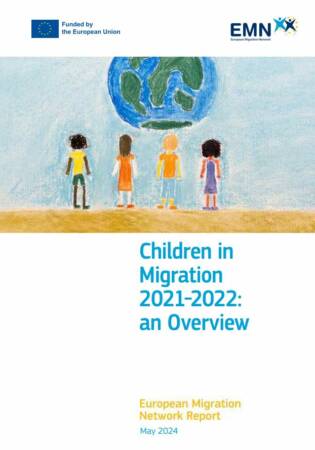
This report maps the progress made by EU Member States and Norway in 2021-2022 in the implementation of the recommended actions laid down in the 2017 Commission Communication on the protection of children in migration, with a view to further understanding progress made in the implementation of the Communication’s recommendations. The scope of this Report is limited to migrant children in the categories set out in the 2017 Communication: accompanied minors/families with children, separated children and unaccompanied minors, including those recorded within the asylum system, not applying for asylum but recorded within other migration procedures, and not applying for asylum, who remain outside the asylum/migration/(child) protection system.

Since February 2022, Russia’s military invasion of Ukraine has created a situation of mass arrivals of displaced people from Ukraine to Europe. European Union activated temporary protection to protect those fleeing the war. European Migration Network commenced a study in 2023 in order to take stock of the implementation of the temporary protection mechanism in Europe a year after the start of the war. This publication is a national report of Finland which describes the situation of temporary protection in Finland in 2023.
Permanent address: https://urn.fi/URN:ISBN:978-952-7427-45-3
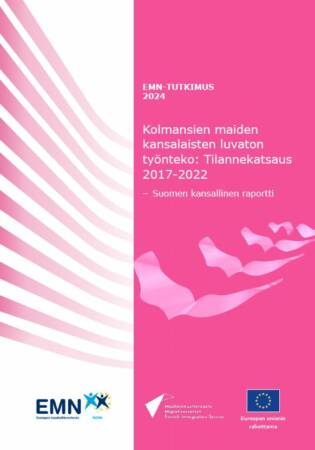
This European Migration Network (EMN) study is an overview of the legislation, policies and practices related to illegal employment of third-country nationals in Finland. The study covers the period 2017-2022, so it is also an update of the EMN's 2016 study on the same topic.
Permanent URL: https://urn.fi/URN:ISBN:978-952-7427-44-6
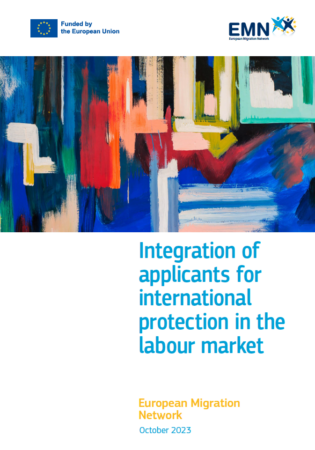
This EMN study documents the labour market access of applicants for international protection between 2017 to 2022. This involves an up-to-date and in-depth analysis of legislation, policies and practices in EMN Member Countries on integration of applicants for international protection into the labour market, and the key actors involved in that implementation. It also provides examples of challenges and good practices.
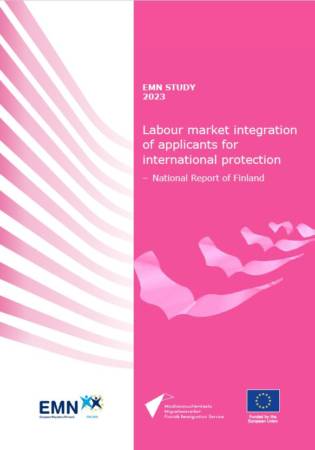
This national report examines the access and integration of applicants for international protection into the labour market in Finland. The report contains statistics on applicants for international protection and examines legislation, policies promoting labour market integration, good practices supporting employment and challenges related to employment of applicants for international protection. The study covers the period from 2017 to June 2022.
Permanent address: https://urn.fi/URN:ISBN:978-952-7427-35-4
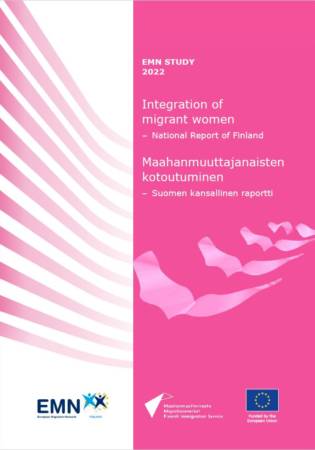
The Finnish national report for this EMN study discusses the extent to which the special characteristics of the integration of migrant women have been taken into consideration in Finnish integration policy. This study covers women who have moved to Finland from third countries. The first part examines, in light of statistics, the backgrounds of women who migrate to Finland as well as their most significant opportunities and challenges related to integration. The second part of the study examines solutions to improve the integration of migrant women through integration policy. Third part introduces selected best practices of promoting the integration of migrant women.
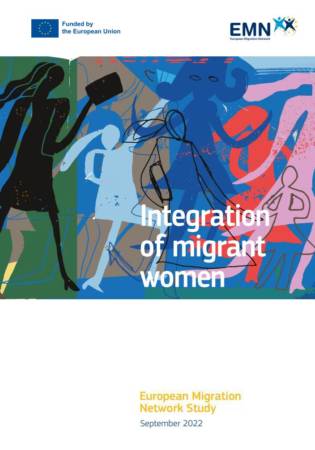
This EMN study focuses on the main areas covered by the EU Action plan on Integration and Inclusion 2021-2027 that support the integration of migrant women for example in education and training, employment and skills, health and housing as these are considered by the Action Plan the base for societal integration. The study examines how Member States consider the distinct situation of migrant women in their integration policies and measures.
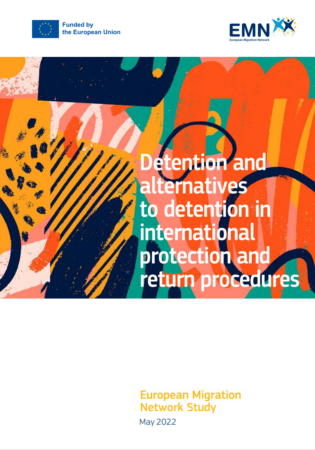
This study aimed to identify similarities, differences, practical challenges, and best practices in the use of detention and alternatives to detention in the Member States within the framework of both international protection and return procedures. The study paid special attention to the use of detention and alternatives to detention in relation to vulnerable persons such as minors, families with children, pregnant women, and people with special needs.
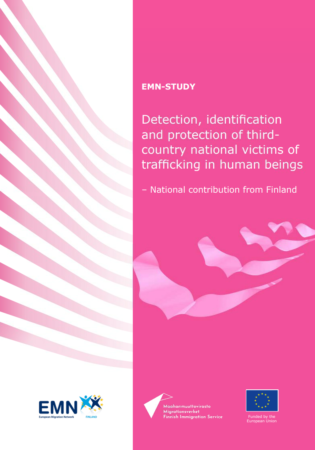
The national report of Finland based on the study ‘Third-country national victims of trafficking in human beings: detection, identification and protection’. The purpose of this report is to establish an overview of Finnish practices pertaining to the detection, identification and protection of third-country national victims of trafficking in human beings. The report also highlights key challenges and good practices that have emerged in anti-trafficking efforts over the years.
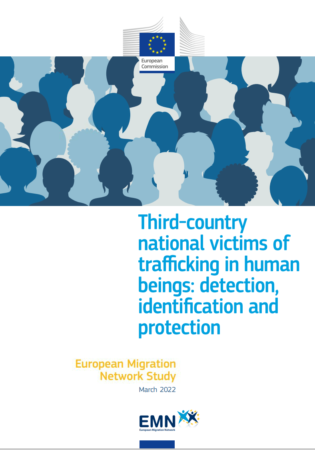
This study aims to provide an overview of existing policies and practices in the EU Member States and Norway towards third-country nationals in a prolonged situation of irregular stay. The overall focus is on those third-country nationals subject to a return decision but whose return was not enforced or was postponed, and those without a return decision who are unknown to the authorities.